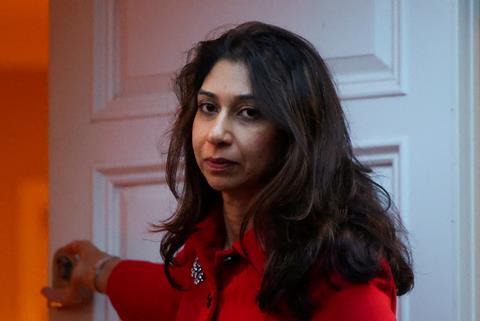Suella Braverman was dismissed from government for stoking division in an already divided society. Christians are called to resist the easy option of silos, says Tim Farron MP, instead choosing to walk a path of peace through the culture wars

This past Saturday, on Armistice Day, seven men were charged for disorder in central London, with offences including inciting racial hatred. The Metropolitan Police reported that 145 people were arrested in total, the “vast majority” of whom were far-right counter protesters to the pro-Palestinian march being held that day. Nine police officers were also injured.
We rightly pray for peace around the world as nations rage against each other, and rumours of wars rear their heads. But we should also pray for peace at home. As followers of Jesus, we should not be willing recruits in the culture war that pits demographic groups against each other.
As Christians, we have a responsibility to resist the easy option
Culture wars just entrench our biases and embed us among others like us, unwilling to consider the experiences of those on the other side. It entails a lack of grace and a lack of curiosity about why people hold different views to our own; it reduces everyone who doesn’t think like us to being the enemy.
Stoking division
Leading politicians, particularly the home secretary, have a solemn duty not to instigate unrest or breaches of the peace. Suella Braverman wrote an opinion piece in The Times last week that accused the Met of playing favourites, acting more leniently towards some groups of protestors than others. It was not approved by the prime minister and, on Monday morning, she was sacked from the government.
Her removal was not only because she was constantly forging her own path rather than abiding by collective Cabinet responsibility (making the PM look weak by not taking action), it was also about the tone of her comments, from which other government ministers have increasingly sought to distance themselves.
She was seen to be deliberately stoking divisions in society. We do not know how many members of the far right, hooligan tendency were encouraged to turn out because of Braverman’s comments, but we do know that our leaders’ words have the power to impact unity and safety in our communities. Careless talk costs!
Already, we see both sides digging in, as Braverman’s defenders claim she was sacked “for speaking the truth”. But these are sensitive issues that need wise leadership and carefully-worded conversations.
Against injustice
As Christians, we have a responsibility to resist the easy option of being siloed in the culture war. Our path is a narrow one (Matthew 7:14). Refusing to pick a side doesn’t mean neutrality or keeping silent. We are to stand against injustice wherever we see it, and this may well mean offending people on both sides. Like Jesus, we must choose the side of the children, the captives, the poor and the sick – those who tragically face the brunt of the fallout from any conflict.
But it also means holding true to our convictions with humility, graciousness and gentleness. Instead of retaliating against accusations, we must turn the other cheek (Matthew 5:39). We would do well to heed the warning of Proverbs 15:1: “A gentle answer turns away wrath, but a harsh word stirs up anger.” Let’s not be those who deliberately stoke anger, but those who speak the truth in love (Ephesians 4:15)
We are to stand against injustice wherever we see it, and this may well mean offending people on both sides
Zechariah’s song in Luke 2:78-79 ends by pointing to the “the tender mercy of our God, by which the rising sun will come to us from heaven, to shine on those living in darkness and in the shadow of death, to guide our feet into the path of peace.” Perhaps this can be our prayer this week.
The path of peace
The new home secretary, James Cleverly, faces a daunting in-tray, especially as we expect a Supreme Court ruling this week on the government’s controversial policy to deport immigrants to Rwanda. We must pray that he won’t simply be an opinion pundit but a level-headed authority figure; that he will make hard decisions with strong conviction, but that he’d still be able to listen and change his mind.
The return of former prime minister, David Cameron, to the cabinet as foreign secretary is a move that few people saw coming. Is it a desperate last throw of the dice by Rishi Sunak, or a wise move to bring in an experienced head? Will David Cameron’s appointment soothe divisions in the Conservative party, or inflame them even more as right-wing, pro-Brexit Conservatives vent their rage? Whichever is the case, let’s pray for wisdom and courage as he seeks to represent the UK in an increasingly difficult foreign policy environment.
Finally, let us pray for God’s help to show all of our leaders, and all of us, the way to walk the path of peace through the treacherous ground of the culture wars ahead.






































7 Readers' comments